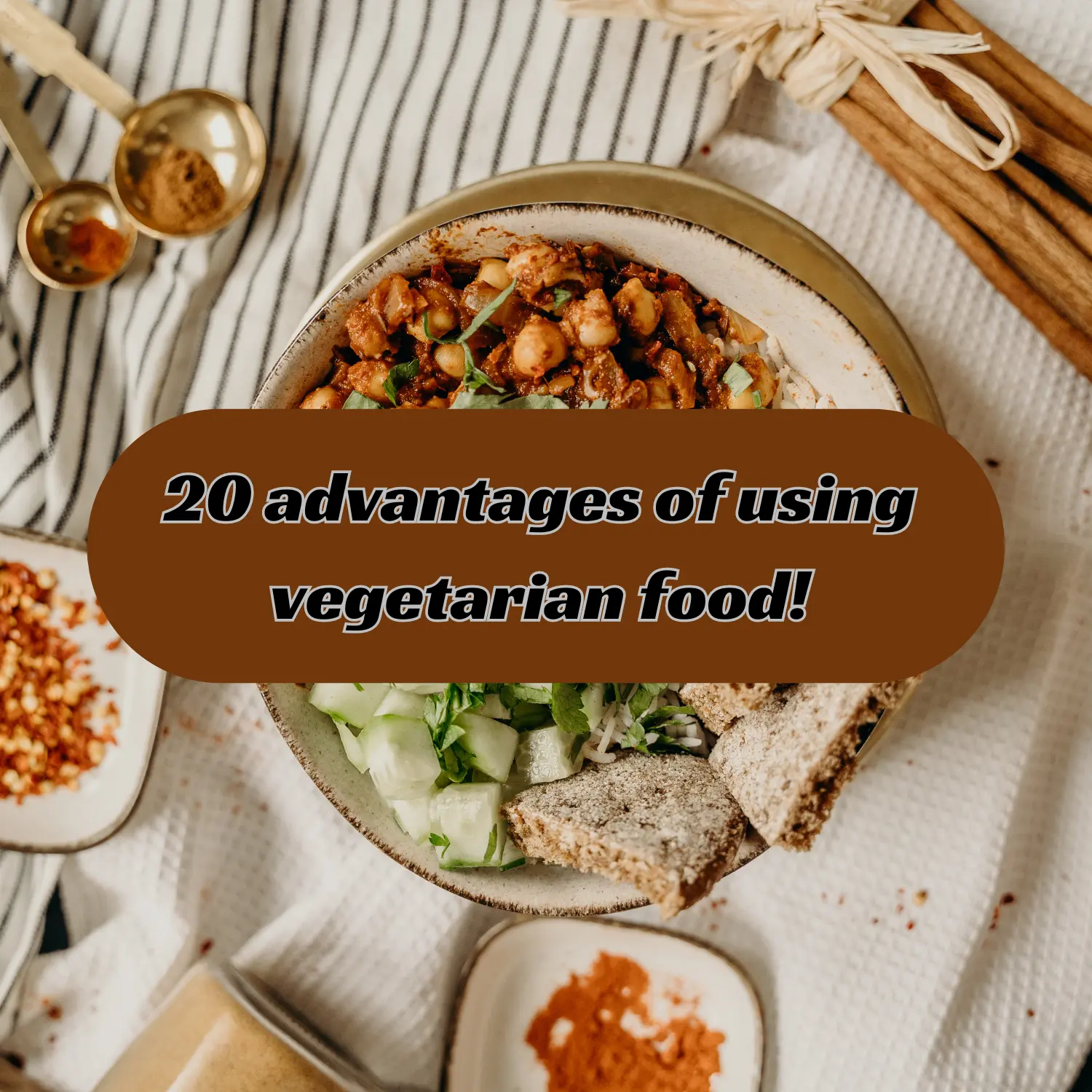Advantages of Embracing a Vegetarian Lifestyle: A Wholesome Approach to Wellness
Vegetarianism is not merely a diet but a conscious choice to exclude meat and, in some cases, animal by-products from one’s meals. The popularity of vegetarian food has been steadily increasing, driven by health-conscious individuals and those concerned about the environment and animal welfare.
Table of Contents
Nutritional Benefits of Vegetarian Food
Rich in Vitamins and Minerals
One of the primary advantages of a vegetarian diet is its richness in essential vitamins and minerals. Fruits, vegetables, grains, and legumes provide a diverse array of nutrients that contribute to overall health.
High Fiber Content
Vegetarian food, particularly plant-based options, is typically high in fiber. A diet abundant in fiber supports digestive health, aids in weight management, and contributes to lower cholesterol levels.
Lower Cholesterol Levels
Studies consistently show that individuals who follow a vegetarian diet tend to have lower cholesterol levels. This has a direct positive impact on heart health and reduces the risk of cardiovascular diseases.
Health Advantages
Reduced Risk of Heart Diseases
The exclusion of red meat from a vegetarian diet has been linked to a lower risk of heart disease. The emphasis on plant-based options supports heart health by reducing saturated fat intake.
Weight Management
Vegetarian diets, when well-balanced, often result in effective weight management. The focus on whole, nutrient-dense foods helps individuals maintain a healthy weight.
Improved Digestion
The abundance of fiber in vegetarian diets promotes optimal digestive function. Fiber aids in regular bowel movements and prevents common digestive issues.
Environmental Impact
Lower Carbon Footprint
Choosing vegetarian options contributes to a lower carbon footprint. The production of plant-based foods generally has a smaller environmental impact compared to livestock farming.
Sustainable Agriculture Practices
Vegetarianism aligns with sustainable agricultural practices. The resources required to produce plant-based foods are often more efficient and environmentally friendly than those needed for meat production.
Ethical Considerations
Compassionate Treatment of Animals
One of the ethical pillars of vegetarianism is the compassionate treatment of animals. Choosing a plant-based diet supports a lifestyle that avoids contributing to the harm and suffering of animals for food.
Ethical Farming Practices
Vegetarianism often involves a commitment to supporting ethical farming practices. This includes advocating for humane treatment of animals and environmentally conscious farming methods.
Economic Benefits
Cost-Effectiveness
Contrary to the misconception that vegetarianism is expensive, a plant-based diet can be cost-effective. Staples like grains, beans, and vegetables are often more budget-friendly than meat.
Sustainable Food Production
Vegetarianism aligns with sustainable food production. With a growing global population, the shift towards plant-based diets can contribute to more sustainable food systems.
Culinary Diversity
Wide Variety of Vegetarian Dishes
Vegetarianism offers a vast culinary landscape with a wide variety of dishes. From Mediterranean delights to Asian-inspired creations, the options are diverse and flavorful.
International Vegetarian Cuisines
Exploring vegetarianism introduces individuals to a world of international cuisines. Many cultures have rich traditions of vegetarian cooking that are both delicious and nutritious.
Promoting Longevity
Studies on Vegetarianism and Lifespan
Research suggests that embracing a vegetarian lifestyle may contribute to increased longevity. The combination of health benefits, including lower risks of chronic diseases, supports a longer and healthier life.
Health Benefits Contributing to Longevity
The overall health advantages of vegetarianism, such as lower cholesterol, improved heart health, and cancer prevention, contribute to a higher quality of life and increased longevity.
Cancer Prevention
Antioxidants in Vegetarian Foods
The presence of antioxidants in many vegetarian foods is a key factor in cancer prevention. Antioxidants help neutralize free radicals, reducing the risk of cell damage and the development of cancer.
Studies Linking Vegetarianism to Reduced Cancer Risk
Scientific studies consistently show that individuals who follow a vegetarian diet have a lower incidence of certain cancers. The protective elements in plant-based foods contribute to this reduced risk.
Increased Energy Levels
Nutrient-Rich Vegetarian Diet
The nutrient-rich nature of a vegetarian diet provides the body with essential vitamins and minerals, promoting sustained energy levels throughout the day.
Improved Overall Vitality
Individuals who adopt a vegetarian lifestyle often report feeling more energetic and vital. The combination of balanced nutrition and a lighter digestive load contributes to an overall sense of well-being.
Heart Health
Lower Blood Pressure
Vegetarian diets have been associated with lower blood pressure levels. The reduced intake of sodium and saturated fats contributes to better cardiovascular health.
Positive Impact on Cardiovascular Health
The positive impact of vegetarianism on heart health extends beyond lower blood pressure, including improved cholesterol levels and a reduced risk of heart-related conditions.
Weight Loss and Maintenance
Lower Calorie Intake
Vegetarian diets often result in lower calorie intake, making them effective for individuals seeking weight loss or weight maintenance.
Sustained Weight Loss
The sustainable nature of vegetarianism, coupled with its focus on whole foods, supports individuals in maintaining a healthy weight in the long term.
Digestive Health
High fiber-aided digestion
The high fiber content in vegetarian diets promotes optimal digestive health. Fiber aids in regular bowel movements, preventing constipation and other digestive disorders.
Reduced Risk of Digestive Disorders
Studies suggest that individuals who consume a plant-based diet have a reduced risk of developing common digestive disorders, such as irritable bowel syndrome (IBS) and constipation.
Boosted Immune System
Nutrient-Dense Vegetarian Foods
A vegetarian diet, rich in fruits, vegetables, and other plant-based foods, provides the body with essential nutrients that support a robust immune system.
Enhanced Immune Response
The vitamins and minerals found in vegetarian foods contribute to an enhanced immune response, helping the body defend against infections and illnesses.
Mental Well-being
Impact of Diet on Mental Health
Research indicates a link between diet and mental health. Vegetarian diets, with their focus on nutrient-dense foods, may contribute to improved mental well-being and reduced stress.
Studies Linking Vegetarianism to Reduced Stress
Some studies suggest that individuals who follow vegetarian diets experience lower stress levels. The combination of nutritional factors and ethical considerations may contribute to this positive impact on mental health.
Conclusion
In conclusion, embracing a vegetarian lifestyle offers a multitude of advantages that extend beyond personal health. From environmental sustainability to ethical considerations and economic benefits, the decision to choose vegetarian options is a holistic approach to well-being. As you explore the diverse world of vegetarian cuisines, you not only enhance your health but also contribute to a more compassionate and sustainable planet.
FAQs
Is a vegetarian diet suitable for all age groups?
Yes, a well-balanced vegetarian diet can be suitable for individuals of all age groups, from children to seniors.
Can a vegetarian diet provide enough protein?
Absolutely, a vegetarian diet can provide ample protein through sources like beans, lentils, tofu, and dairy products.
How can I ensure I get enough nutrients on a vegetarian diet?
Ensure a diverse diet that includes a variety of fruits, vegetables, grains, and protein sources to cover all essential nutrients.
Save this pin!








